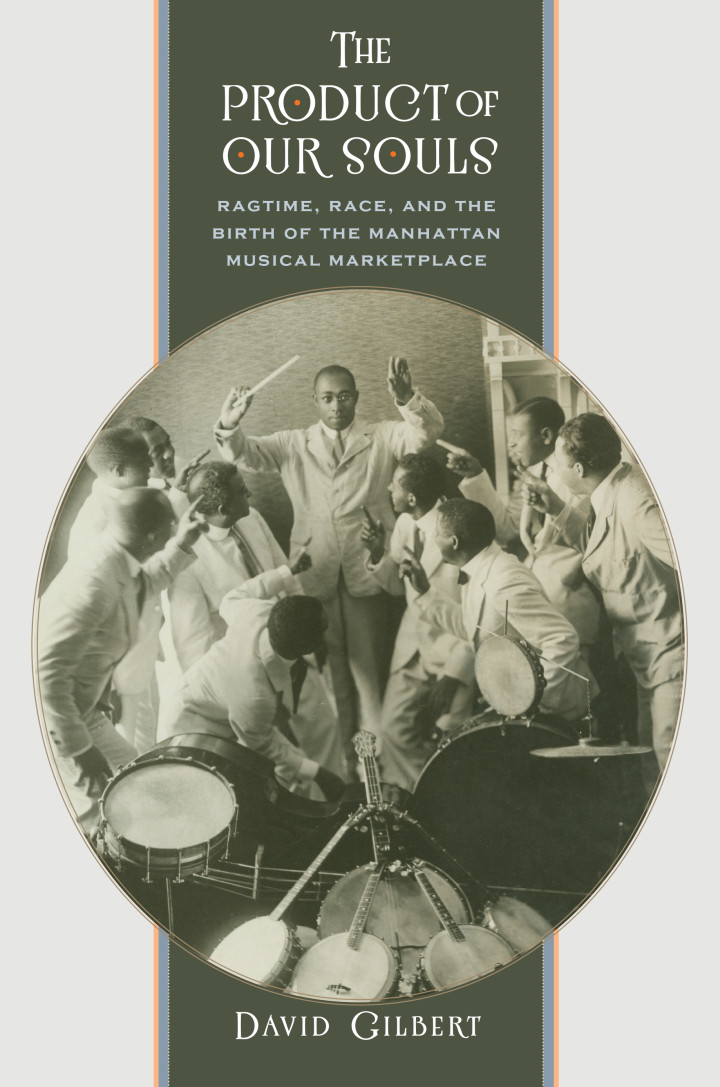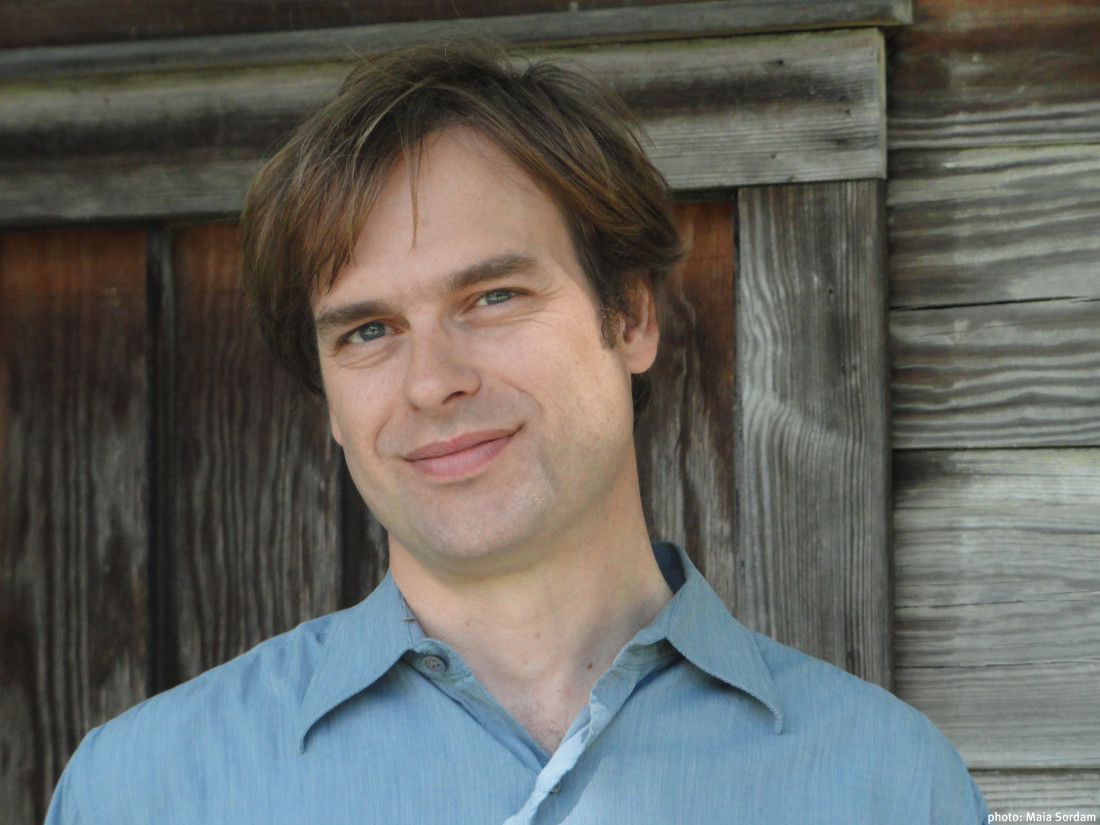“There’s political power in racial identity. That’s one of the reasons we have racial assumptions about music,” says author, musician and historian David Gilbert. “Duke Ellington and James Brown [took] black rhythm all the way to the bank and all the way to the White House, when they were invited.”
But, he continues, “the idea that black people and white people have distinct music and culture has its roots in racist thinking.” It’s a concept he delves into in The Product of Our Souls: Ragtime, Race, and the Birth of the Manhattan Musical Marketplace. Gilbert holds a book launch and discussion at Malaprop’s Saturday, Nov. 14.
Currently a visiting professor of history at Mars Hill University (as well as a member of local bands Skunk Ruckus and Plankeye Peggy), Gilbert began work on The Product of Our Souls as a doctoral candidate. “In my first graduate jazz seminar, I heard a recording of James Reese Europe,” he says. It predated the 1920s advent of race records — a marketing push based on the concept that black artists sold to black audiences — and, Gilbert says, it didn’t sound like what we associate as the music of African-Americans, especially after jazz. “It didn’t swing. It’s groovy but it’s strict … more like a marching band,” he says. “It had a violin, a clarinet, banjos and mandolins.” Europe’s collective was an eclectic dance band.
Gilbert continues, “This is what got my wheels spinning. This was the sound of black modernity at the turn of the 20th century, yet it evokes very few of the musical characteristics that almost everybody would associate with black sound after 1920.”
 What began, more than a decade ago, as a biography of Europe, expanded into a broader project. It’s the story of “a community of musicians working in New York before Harlem. They are living in the Tenderloin [district] and the Marshall Hotel,” Gilbert says. The book’s tenets are simple enough on the surface, but the narrative quickly turns to complicated topics beyond a history of prejudice in the U.S. “It’s mired in commercial imperatives and people wanting to be professionals,” the author says.
What began, more than a decade ago, as a biography of Europe, expanded into a broader project. It’s the story of “a community of musicians working in New York before Harlem. They are living in the Tenderloin [district] and the Marshall Hotel,” Gilbert says. The book’s tenets are simple enough on the surface, but the narrative quickly turns to complicated topics beyond a history of prejudice in the U.S. “It’s mired in commercial imperatives and people wanting to be professionals,” the author says.
Gilbert uses the word “marketplace” in the book’s subtitle and discusses in detail how racist stereotypes were bucked by artistic means, such as minstrelsy. “Blacks-in-blackface became stars in vaudeville and musical theater,” Gilbert says. “They knew it was a ruse — they used the stereotypes and the platform that stages provided to comment on, joke about and undermine minstrel conventions. And as they did so, black entertainers challenged white supremacy and American social norms, demonstrating that they were capable of satire and creativity.”
He adds that, as American culture circulated nationally and New York City became an epicenter of theater and music, “African-Americans didn’t just make interventions into it and twist it in their own way.” Blacks played unparalleled roles in developing performance styles with national impact. “Tin Pan Alley was not Tin Pan Alley as a national song publishing industry until African-Americans brought ragtime to it,” Gilbert says. “Broadway Avenue was a street among many in Manhattan that had some theaters on it.” But it didn’t become Broadway until African-Americans brought their work to the stage.
Gilbert focused on the turn of last century because he’s interested in the cultural story of racial identity in music. Why do listeners, even in 2015, identify some sounds — R&B, soul and hip-hop, for example — as black and others — say, classical or dream-pop — as white? “In America, there’s nothing exclusive,” he says of cultural heritage. There are artists challenging those ingrained ideas. Valerie June, whom Gilbert interviewed for Xpress in 2014, expressed her love of country and folk music despite being labeled a soul artist due to the color of her skin. The Carolina Chocolate Drops brought black string band traditions to, if not the masses, at least a much wider audience than had previously encountered those songs. And Rhiannon Giddens, a founding member of that group, has pushed the envelope even further by performing and recording Gaelic mouth music.
But, as Gilbert would have us consider, why shouldn’t she? Even if music evolved from a particular group or region, it’s always been commutable. Henry Wadsworth Longfellow knew of what he spoke when he called it the universal language of mankind.
“I love that there are examples of people not only transcending but calling attention to the legacies of racism,” says Gilbert. He hopes that The Product of Our Souls will lead to conversations about assumptions in popular culture. And he wants to set the record straight, too, as far as the role of African-Americans not just as entertainers but as savvy entrepreneurs in an emerging commercial market. According to the author, “It’s an old story and it needs to be retold.”
WHO: David Gilbert launches The Product of Our Souls
WHERE: Malaprop’s, malaprops.com
WHEN: Saturday, Nov. 14, at 7 p.m. Free




Before you comment
The comments section is here to provide a platform for civil dialogue on the issues we face together as a local community. Xpress is committed to offering this platform for all voices, but when the tone of the discussion gets nasty or strays off topic, we believe many people choose not to participate. Xpress editors are determined to moderate comments to ensure a constructive interchange is maintained. All comments judged not to be in keeping with the spirit of civil discourse will be removed and repeat violators will be banned. See here for our terms of service. Thank you for being part of this effort to promote respectful discussion.